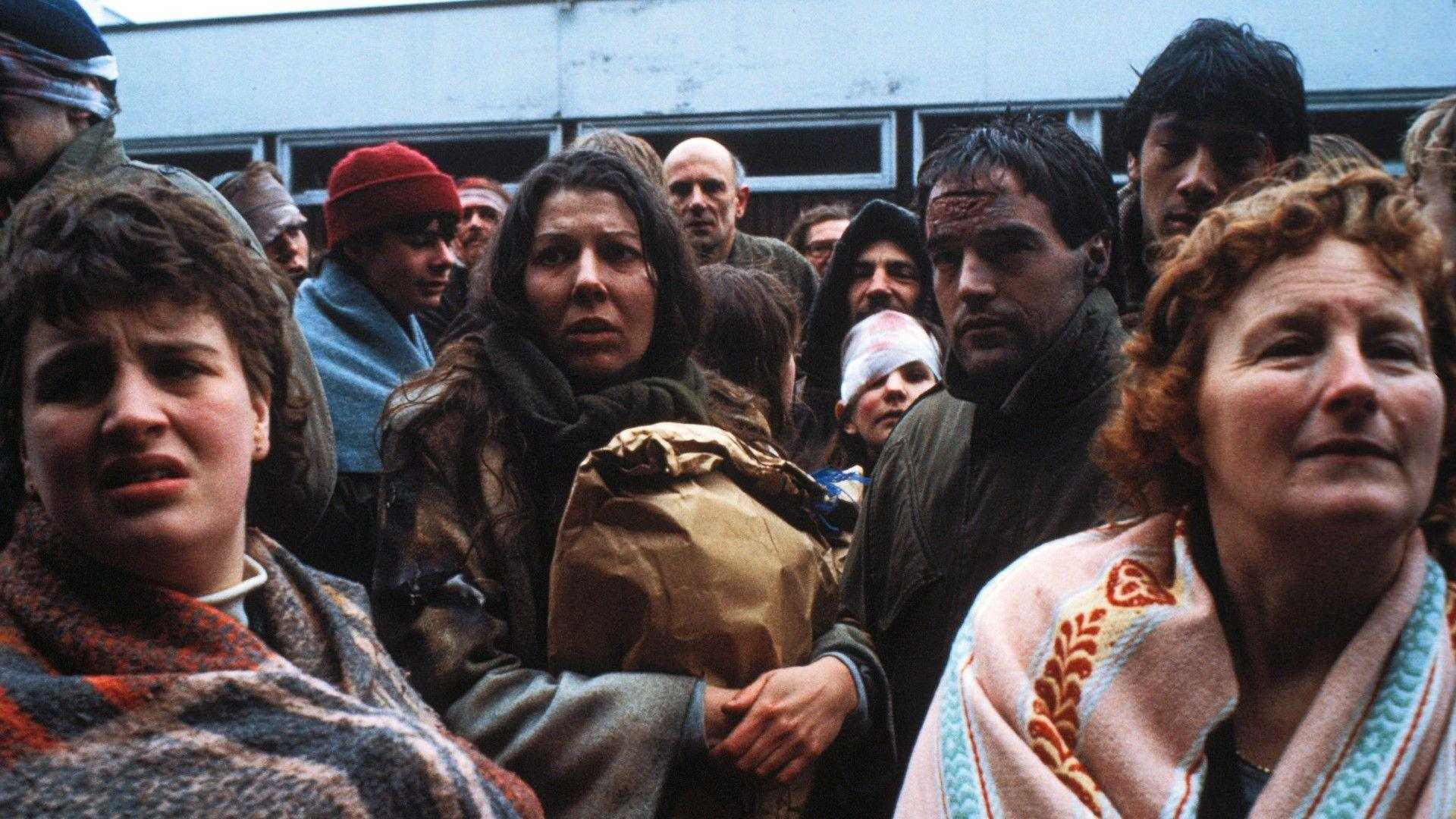Entertainment
Revisiting ‘Threads’: BBC’s Nuclear Apocalypse Drama Returns

One of the most unsettling programmes ever aired on British television, ‘Threads‘, a nuclear apocalypse drama-documentary, continues to resonate deeply even 40 years after its original broadcast. The BBC is marking this anniversary with a rare re-showing, set for October 9th on BBC Four and iPlayer.
Originally broadcast on September 23, 1984, ‘Threads’ presented a harrowing depiction of a nuclear attack on the city of Sheffield and its aftermath. This broadcast occurred at a time when tensions between the West and the Soviet Union were at a peak, rendering the scenario hauntingly plausible to its audience.
The screenplay, crafted by Barry Hines, known for his work ‘Kes’, chose Sheffield as its target, owing to Hines’s residence in the area. Prior to the broadcast, a private screening was held for approximately 600 local extras who had participated in the film, ranging from amateur dramatics enthusiasts to those interested in the novelty of appearing onscreen. Their reactions post-viewing were overwhelmingly emotional, with many finding the content more disturbing than anticipated.
The drama follows two families, the Kemps and the Becketts, through the events leading up to and following a nuclear strike. The narrative spans 13 years after the attack, illustrating the breakdown of society amid nuclear winter, and offers no easy escape or resolution, starkly contrasting with typical disaster films.
Director Mick Jackson, who had also worked on a grim BBC documentary in 1982, ensured the precise calculation of the catastrophic effects of a nuclear bomb on Sheffield. His detailed portrayal of the disaster included a predicted massive shockwave, bringing destruction nine miles beyond the impact site.
The show stirred considerable debate and reflection following its release. Breakfast Time, a BBC morning programme, devoted much discussion to the issues ‘Threads’ raised. During a segment, Boy George, promoting Culture Club‘s single ‘The War Song’, emphasized the necessity of such realistic depictions of war, counteracting the glamorization found in other media.
On the BBC debate show Newsnight, military and strategic experts from the UK and US discussed the film, highlighting its potential impact on public perception of nuclear warfare. Criticism centered around whether the film’s purpose was to inform or simply to frighten, a question that divided opinion among viewers and critics alike.
Amongst those who saw ‘Threads’ at a formative age was Charlie Brooker, a writer for ‘Black Mirror‘, who recounted his inability to process the implications of such an event at the time. “I assumed it [nuclear war] was going to happen,” Brooker told a recent interview, reflecting on the chilling likelihood that seemed more real in his youth.
Even with the world in constant flux since its initial airing, ‘Threads’ retains its chilling capacity to provoke reflection on the realities of nuclear warfare and societal collapse, as relevant now as it was in 1984. The film remains an exceptional example of British television’s ability to confront global existential threats with stark and unrelenting realism.












